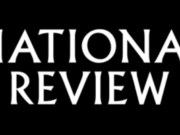Meet Mr. T. Augurson. Although he doesn’t know it yet, he is a campaign finance scofflaw. According to U.S. News & World Report, Mr. Augurson is passionate about cars and politics – his only offense is that he combined the two interests without consulting a lawyer first.
With a 556-horsepower supercharged V8, Mr. Augurson’s CTS-V is the pride of Motown – a “Standard of the World,” as its manufacturer Cadillac likes to say. So why might the Federal Election Commission be interested in Mr.Augurson’s stunning chrome Caddy?
Maybe it has something to do with what’s draped around that marvelous 6.2 liters of fire-breathing Detroit iron. No, I’m not talking about that sleek and sensually creased sheet metal. I’m talking about that vinyl wrap with the “Forward” Obama campaign slogan, complete with the “O” campaign logo and likeness of the president. But not so complete, because it lacked the disclaimer mandated by federal election law.
Mr. Augurson’s “Obamamobile,” which he drove around during last year’s campaign season, is one example of how the ridiculous laws for “independent expenditures” (IE) are a speed trap for well-meaning and public-spirited citizens. The law obligated him to file an IE report with the FEC if he spent just $250, but there’s no record he did so.
Clearly he spent more – a lot more. Additionally, Mr. Augurson was required to display his permanent street address, telephone number, or website address on his car, per the FEC disclaimer requirement.
Lest anyone think I am joking, the FEC released an audit last year of former Sen. Chris Dodd’s 2008 presidential campaign; the report explains how vehicle wraps are treated as reportable IEs. Moreover, in 2008 the FEC went to court and wrangled a jaw-dropping $115,000 penalty out of Stephen Adams – a private individual who used billboards owned by his own company to advocate for President George W. Bush’s reelection. Like Mr. Augurson, Mr.Adams did not know about these reporting and disclaimer laws (and why should they?).
So what sort of penalty (or speeding ticket, if you will) might Mr. Augurson be facing for his glitzy rolling billboard? After three decades of operating in secrecy, the FEC recently published information shedding light on its penalty schedule. We now know the agency typically seeks a penalty of roughly 10 percent of the amount spent on independent expenditures that are not reported.
According to the U.S. News article, Mr. Augurson spent a total of $95,000 on his ride. The car lists at $65,515, so he spent nearly $30,000 customizing it. In calculating the penalty, it gets complicated because it is not clear under the law what counts toward the reportable communication. Is it the whole cost of the car? Or just the cost of the customization? Does the cost of Mr. Augurson’s chrome vinyl wrap count, or is it just the printing of the Obama slogan, logo, and likeness?
Then there is the matter of which states with primaries he drove through, since those would count as separate elections with separate reporting requirements (in addition to the report required for the November general election).
While you ponder that, consider that some FEC commissioners have publicly stated the cost of gas should count as campaign speech too.
So Mr. Augurson might have to pay a penalty of more than $3,000 for failing to file FEC reports if we assume $30,000 in customization costs, plus the gas that propelled the rolling campaign billboard.
But there’s more. For the disclaimer violation, where there is already a penalty for the underlying violation, the FEC typically tacks on a “statutory penalty” of $7,500 or 20 percent of the cost of the expenditure (or more than $6,000 in this case). If the FEC is lenient and applies the lower amount, the total still exceeds $9,000.
As the Supreme Court has articulated, the starting and end point of campaign finance regulation is whether there is a threat of corruption or appearance of corruption. Here, while Mr. Augurson’s gas-guzzling and insanely fast Obamamobile may pose a threat to Al Gore and Ralph Nader, it hardly poses a threat to the integrity of our political system.
The First Amendment protects free speech like Mr. Augurson’s Obamamobile, but the Edsel-like laws that regulate his speech are a giant speed trap for the unwary. And unlike speeding tickets, the FEC’s penalties are much higher. If citizens cannot speak freely about politics without the threat of severe sanctions, they will simply stop speaking. Politicians and the media (which are exempt from these laws) would then have a monopoly on political speech. To avoid shutting people out of the political debate, we need to take our campaign finance laws to the garage for a major engine overhaul.














